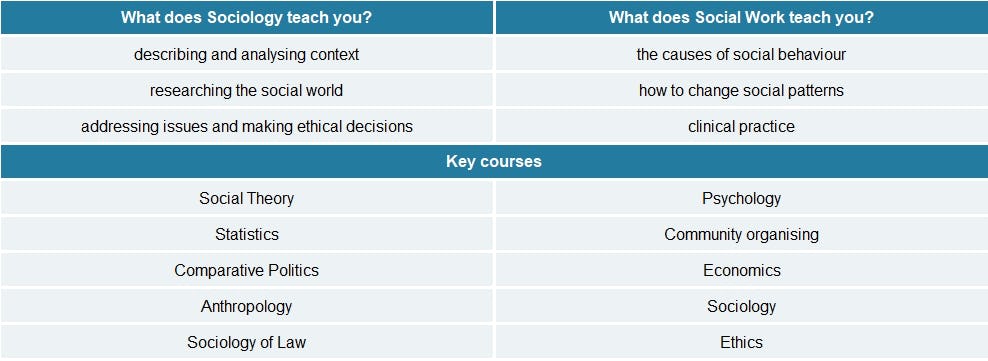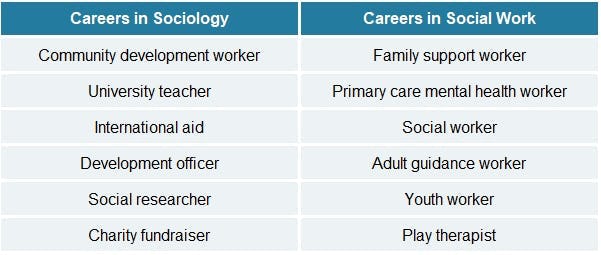This article might not be relevant on all regions of the world, readers are advised to review and critique the article.
Sociology and Social Work have the same focus – us, as members of society. But don’t let that fool you the two are the same thing. If we were to sum each discipline in four words, we can easily say that: Sociology is based on research, while Social Work focuses on problem-solving.
But, because you haven’t come here to read 8-words worth of explanation, let’s analyze each and discover which degree subject is best suited for you.
1. Sociology versus Social Work: What does each degree teach you?
Sociology degrees are focused on understanding human interaction, looking at distinctive groups and cultures. In other words, Sociology is the theoretical part you will need to study and apply as a social worker.
Social Work deals with defining and discovering new methods that influence human behavior and interactions to change group dynamics, and to help people overcome their problems.
Social work is, sometimes, mistakenly considered applied Sociology. No. Just no. This field targets individual problems and issues, such as: chemical dependency, youth and mental health, child development, poverty, community building, and the like.

The impact of Social Work is on a micro-scale, while Sociology focuses on macro-scales, even if both are considered to be focused on combating social injustice.
That’s the easiest way to remember them, actually: Sociology is focused on facts, and Social Work on the consequences of actions.
2. What do sociologists and social workers do?
After you graduate your degree in Sociology or Social Work (and after you party all night), you can go get serious and apply to various types of jobs. Which ones do you think are suited for you?

And now the info you’ve probably waiting for: what are the typical salaries for graduates in these two disciplines. When it comes down to your salary, you should first know that it mostly depends on where you decide to work and what career path you take.
About the Author
Ana-Maria Pasolea
Ana is a quixotic person, always wanting to help people better themselves, by sending them to search for the definition of the word “quixotic”, for instance, A psychologist by profession, Ana knows that everything surrounding us is influenced by Psychology, including writing, making it her goal to find the perfect way in which to combine the two harmoniously.



